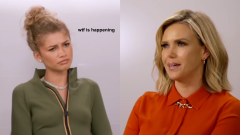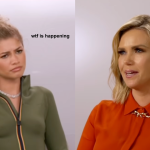
The stack of defunct locally-produced publications is growing. The dailies have been downsized. Jobs are being outsourced to international agencies, redundancies are rising, and the majors Fairfax Media and News Limiteds have installed paywalls in an attempt to scrounge up extra revenue. As the prospect of growth in the industry seems less and less likely, is the Australian media landscape becoming a desert of employment? Jonno Seidler has recently crossed over from journalism into the world of advertising, and here he considers the mass exodus of journalists leaving for other trades and what is to become of the local media industry in these uncertain times…
This week marks my last at Bauer Media, the company formerly known as ACP, as I step into my first non-editorial role in seven years. All around me, writers, editors and reporters that I grew up, studied and trained with are abandoning mastheads, radio stations, digital properties and TV networks, making their way to the safer high ground of PR and marketing. I’m about to walk into one of the country’s biggest advertising agencies, a move which I would have laughed at if someone had proposed it to me even a year ago. Increasingly, however, there doesn’t seem to be anywhere left to go.
In the two years that I barely scraped through a law degree before becoming a writer, they had a subject called ‘Law, Lawyers and Society’, in which they sat bright-eyed kids down and gave them the hard facts about what their future lives would look like. This included references to divorce, drug abuse and the potential for depression or suicide, the rationale being that knowing what is around the corner means you can work smarter to avoid it. There was no such course available in Media & Communications.
We learned about the inverted pyramid of news reporting, and how to interview someone off the record. Retrospectively, it would have been nice to have one hour where they told us that the media is in a constant state of flux, and sometimes the bottom just drops out on you. ‘You will never really have any job security. But hey, at least you won’t be depressed like all those lawyers, right?’
Over the last couple of years I have seen the abandonment of the posts of everyone from producers to junior court reporters. This has kickstarted a vicious cycle that will take us a lot longer to get out of than the ‘Who is going to pay for content?’ question.
The ugly truth is that many young people today do not trust their own media; not only just to provide them with employment, but also to inform and entertain or even to just tell them the truth. With access to the Internet, they source their news and editorial from everywhere and anywhere, and increasingly, those places are not in the Southern Hemisphere. This is a much harder feeling to shake, especially when the ones who practice in the field have seemingly lost hope themselves.
To be clear, The Internet will not kill newspapers or magazines, the same way as TV didn’t kill the cinema, which in turn didn’t kill the radio. Being forced to adapt is normal, and rationalising your approach to business is how to get ahead in any world, old or new. Cannibalising your talented veterans or underpaying hard workers at the expense of a bunch of work experience kids who will write for peanuts is not going to save anyone’s ailing masthead or company. And yes, killing Grazia might, but that’s only because it was excess fat in an overbloated field anyway.
It’s not an original statement, but stories always need to be told and people will always want to read them. Someone will figure out the impossible the same way they always have. Who thought anyone would ever buy music again after Napster? How is it possible that anyone will ever pay for TV again? I have zero doubt that the iTunes and Netflix-es of journalism will arrive, sooner rather than later. The question is whether there will be anyone still around to make content for it.
Australians have this ridiculous double bind going on whereby we will happily admit that we punch way above our weight culturally, and yet simultaneously accept being behind the mark in certain digital movements because of our seeming remoteness to the rest of the world. Bullshit. That’s our boy Goyte up there, accepting Grammys for the Record Of the Year. That’s our man Baz Luhrmann in Hollywood, prepping the most anticipated cinematic event of 2013.
Why can’t we create a GQ or an Esquire in Australia to rival the overseas models? Why do we default to The Guardian instead of The Australian when we want to read something of quality? Advertising budgets are down post-GFC, but we are not in dire straits. Australia is an incredibly prosperous, talent-filled country. Our audience is smaller, but if Game Of Thrones download numbers are to be believed, they’re as engaged as any on Earth. The real problem, I feel, is that we don’t believe in ourselves enough.
We don’t need to slim back, burn titles, turn ourselves into tabloids or move everything online in the search for the almighty clicks-per-user dollar. These are Band-Aid fixes for an innovation problem that will once again be solved by our Yankee and British mates, but shouldn’t have to be. Nobody likes the guy who comes three hours late to the party and pretends like nothing happened. Nobody was impressed when we got Spotify and Pandora years after the rest of the world. We are smart, we have problem and instead of waiting for Wall Street Journal or Huffington Post, we need to figure out a way to fix it ourselves.
There’s so much that can be done in the media space, but not without jobs or money. Most graduates already have to become multi-proliferate video producers, tweeters, copy editors and web coders just to get an entry level salary. And there’s too many of them vying for the same dwindling number of actual positions. The rest of them are going to places like the one I’m going, which means when newspapers and magazines do find their feet again, they’ll have to wrest feature writers back from brands that pay them four times the amount. That won’t be an easy task.
The world isn’t actually falling to pieces yet, but we need to work proactively. The future of Australian media is all around us. Give them a reason to be there. Just like Tracy Chapman says.
Words by Jonno Seidler, a former Pedestrian news editor, writer and podcaster. He blogs at www.1songday.com.
Main photo feat Gay Talese via Getty Images.







